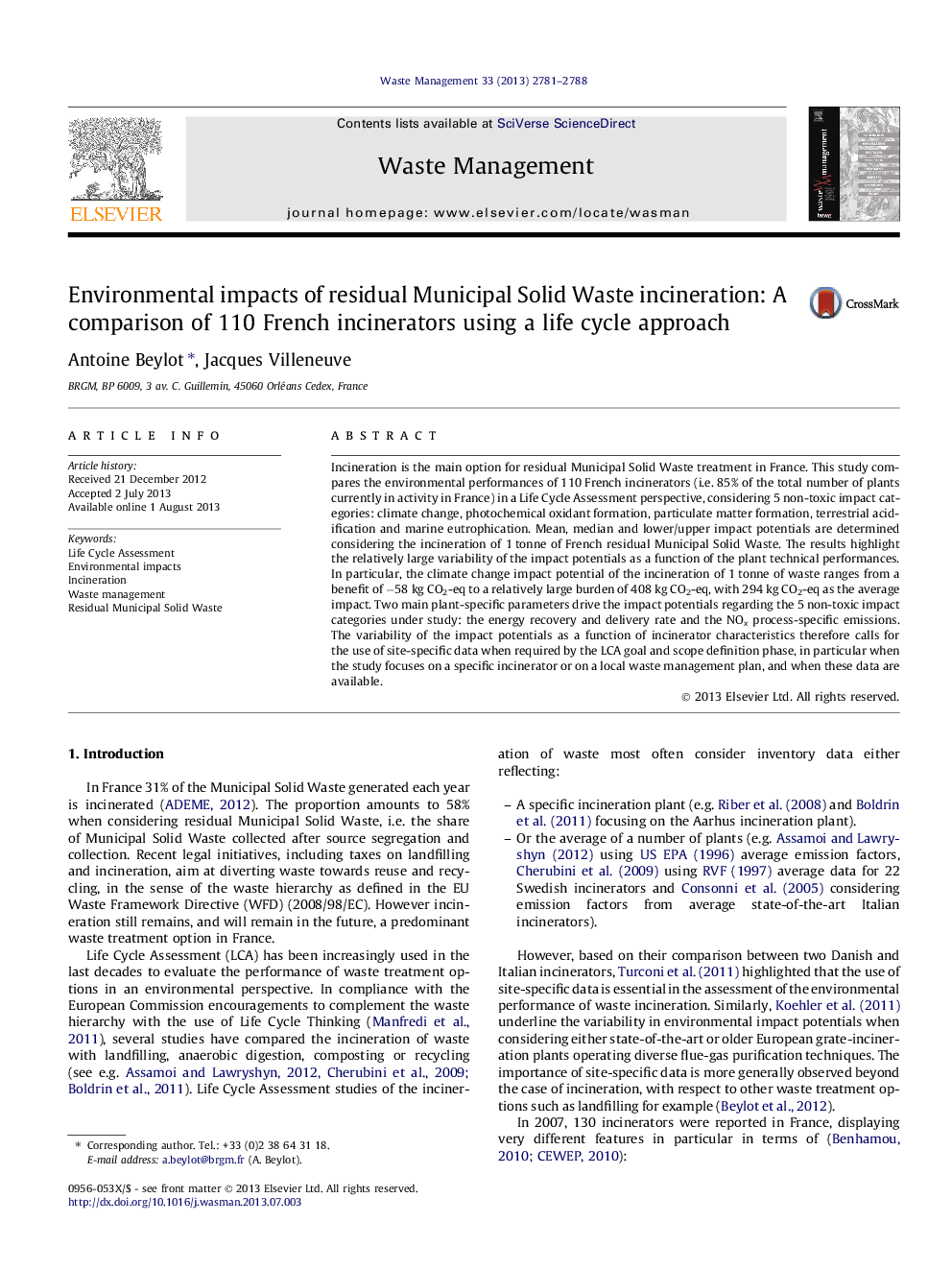| Article ID | Journal | Published Year | Pages | File Type |
|---|---|---|---|---|
| 6355283 | Waste Management | 2013 | 8 Pages |
Abstract
Incineration is the main option for residual Municipal Solid Waste treatment in France. This study compares the environmental performances of 110 French incinerators (i.e. 85% of the total number of plants currently in activity in France) in a Life Cycle Assessment perspective, considering 5 non-toxic impact categories: climate change, photochemical oxidant formation, particulate matter formation, terrestrial acidification and marine eutrophication. Mean, median and lower/upper impact potentials are determined considering the incineration of 1Â tonne of French residual Municipal Solid Waste. The results highlight the relatively large variability of the impact potentials as a function of the plant technical performances. In particular, the climate change impact potential of the incineration of 1Â tonne of waste ranges from a benefit of â58Â kg CO2-eq to a relatively large burden of 408Â kg CO2-eq, with 294Â kg CO2-eq as the average impact. Two main plant-specific parameters drive the impact potentials regarding the 5 non-toxic impact categories under study: the energy recovery and delivery rate and the NOx process-specific emissions. The variability of the impact potentials as a function of incinerator characteristics therefore calls for the use of site-specific data when required by the LCA goal and scope definition phase, in particular when the study focuses on a specific incinerator or on a local waste management plan, and when these data are available.
Keywords
Related Topics
Physical Sciences and Engineering
Earth and Planetary Sciences
Geotechnical Engineering and Engineering Geology
Authors
Antoine Beylot, Jacques Villeneuve,
